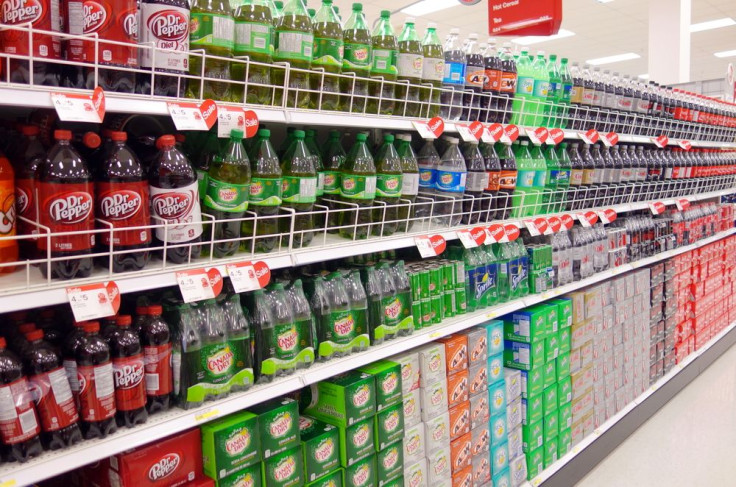Sugary Drink Warning Labels: Expert Agrees With New California Bill For Health Warnings On Soda

Experts have all eyes on California as it waits to move a bill to the final vote that would mandate health warning labels on sugary drinks, such as the infamous culprit of health issues: soda. After the California State appropriations committee voted 5-2 on Friday to require warning health labels on bottled and canned sugary drinks, many experts weighed in, including those abroad. Simon Capewell a professor of public health at the University of Liverpool, highlights that the new health warning move by California is a good idea and one that the UK public would support.
Capewell believes that the public would receive the labeling well, especially considering many other harmful products already carry warning, such as insecticides and cigarettes. The warnings’ power to deter users from harmful products and ingredients is "now agreed by almost everyone" according to Capewell.
In an effort to deter the consumption of high-calorie beverages, which medical experts believes is a large contributor to the childhood obesity epidemic, the bill may be meet fierce opposition when it hits the senate floor for a final vote as early as Wednesday.
"This is a major victory for public health advocates, community groups, physicians, and dentists,” Bill Monning, Democratic state senator and author of the bill, told Reuters. "By informing consumer choice, we can improve the health of Californians.”
Last year, Monning also supposed a proposed measure that would have placed taxes on sugary drinks; however, it fell unsuccessful with no surprise, considering New York City Mayor Michael Bloomberg’s failed attempt in 2012.
Capewell’s international opinion on America’s attempt to curb the liquid sugar consumption is one of hope. He says sugar is "increasingly being implicated as a specific causal factor" for overweight, obesity, and higher risks of heart disease. The "current UK and U.S. obesity policies are failing to reverse obesity trends," he added.
A recent BBC survey found that 60 percent of adults would support health warnings similar to those on cigarette packets on food packaging. Even more, 70 percent would support "banning sugary drinks in UK schools, or limiting the amount of sugar allowed in certain foods.”
The warning labels represent an "interesting natural experiment" that "may offer an effective new strategy to complement existing, potentially powerful interventions like marketing bans and sugary drinks duties," Capewell said.
"Proposals may herald a tipping point in public attitudes and political feasibilities" and that "investors, industrialists, and international health groups will all be watching closely," Capewell continued.
The leading opposition said although the proposal has good intentions, ultimately it "will do nothing to prevent obesity, diabetes, or tooth decay, and may even make problems worse," according to Lisa Katic, who testified on behalf of the California Nevada Soft Drink Association in April because the sugar in Americans’ diets comes mainly from sandwiches and hamburgers and not the frequently scapegoated sodas and other soft drinks.
The American Heart Association recommends Americans drastically cut back on their added sugar intake in order to slow down on the ubiquitous obesity and heart disease epidemics. Harvard School of Public Health agrees and adds that soft drinks are the primary source of extra calories, weight gain, and provide no nutritional benefits, along with many popular children’s breakfast cereals.



























